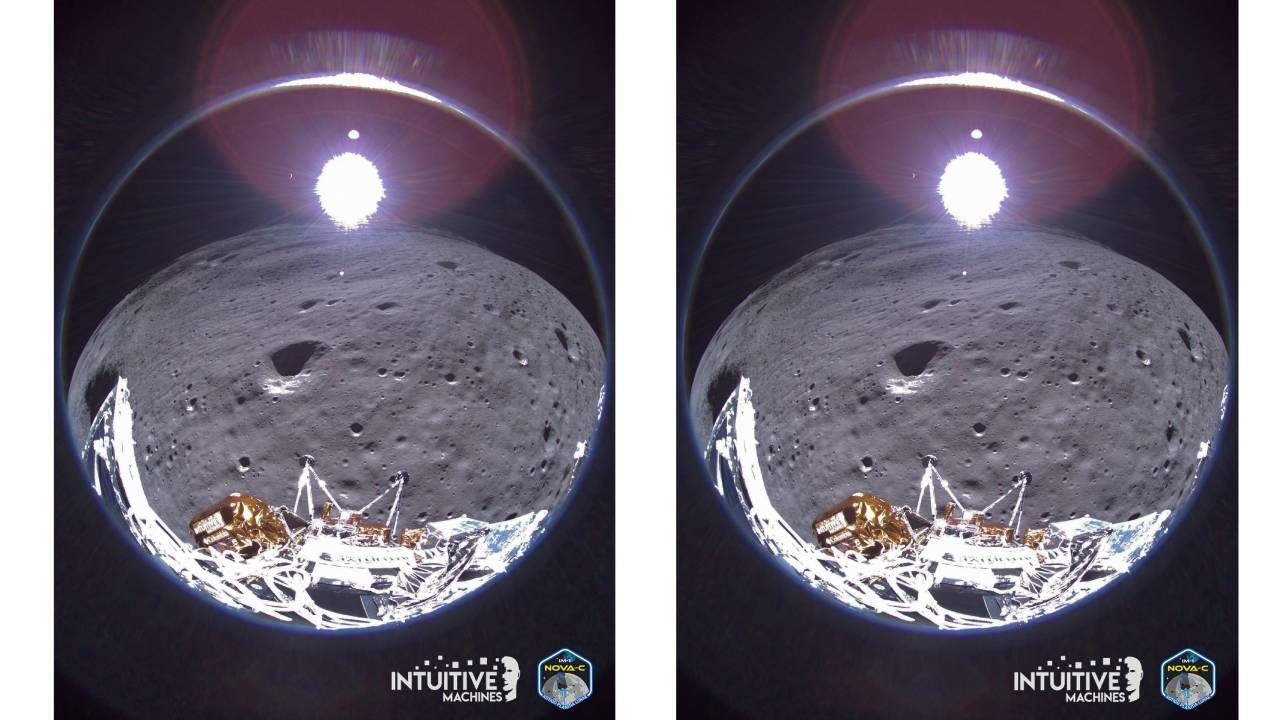US first lunar lander in half a century stops working after week
The first US spacecraft to land on the moon since the Apollo astronauts stopped working on Thursday, a week after breaking a leg during landing and tipping over near the moon's south pole

Nearly a week after Odysseus, the U.S. Intuitive Machines lunar lander that landed on the Moon half a century later, lay on its side with its solar power and communications cut off, flight controllers took one last photo of Odysseus and commanded its computer and power systems to standby, shutting it down.
If the lander survives the bitterly cold lunar nights, it could wake up in two to three weeks.
Intuitive Machines spokesman Josh Marshall said these final steps drained the lander's batteries and put Odysseus into a "long sleep."
Before losing power, Odysseus sent back what Intuitive Machines called “a fitting farewell transmission.”
Taken just before touchdown, the picture shows the bottom of the lander on the moon’s pockmarked surface, with a tiny crescent Earth and a small sun in the background.
The lander was originally intended to last about a week on the moon.
Houston-based Intuitive Machines became the first private business to land a spacecraft on the moon without crashing when Odysseus touched down on Feb. 22. Only five countries had achieved that since the 1960s, including Japan, which made a sideways landing last month.
Odysseus carried out six experiments for NASA, which paid $118 million for the ride. The first company to take part in NASA’s program for commercial lunar deliveries never made it to the moon; its lander came crashing back to Earth in January.
NASA views these private landers as scouts that will pave the way for astronauts due to arrive in another few years.
Until Odysseus, the last U.S. moon landing was by Apollo 17’s Gene Cernan and Harrison Schmitt in 1972.
Source: Newsroom & Associated Press







